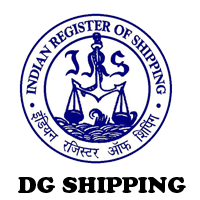Surrogacy has been in use since the 1980s, but unlike being veiled under legal red tape and secrecy at that time, it is now more of a routine option for the couples who could otherwise never have a baby who inherited their genetic heritage.
What is Surrogacy?
It is a process wherein a woman carries a pregnancy for another couple who is either suffering from the severe fertility problems or is a single parent desire for a genetically matching baby. The woman carrying the baby of the intended parents is called a Surrogate.
In surrogacy, an embryo is created using sperm and egg produced by intending parents (or donors) and is then transferred to surrogate mother’s uterus. It is possible that surrogate has no genetic link to the child as the intending parents may or may not choose to conceive using surrogate’s egg. At our Fertility Centre in Ludhiana, Punjab Surrogacy Process is done by utmost care.
Surrogacy can be classified into two, choosing either of which depends on the intensity of the fertility problem in the intended parents.
These two types of surrogacy: Traditional and Gestational, differs each other by whose egg is used.
Traditional surrogacy– More commonly termed as the partial or straight surrogacy, the surrogate woman in this arrangement is a biological mother of the child.
The surrogate is inseminated with the sperm from-
- The intended couple- if the couple is suffering from uterus and egg problems and cannot host a pregnancy.
- Sperm donor- if both the partners in a couple possess fertility problems
It is also helpful for couples having no female partner.
Gestational Surrogacy– It is a costly & complicated procedure wherein the surrogate is not a biological mother of the child. The surrogate’s uterus is implanted with the embryo created using the parent’s gametes or donor gametes or is a combination of both, using the In-Vitro Fertilization (IVF) process.
It is beneficial for the-
- The couple who has healthy eggs but not the healthy uterus.
- A gay couple who can use the donor eggs from a female unable to hold a pregnancy.

Surrogacy Process-
- Check out for the laws & regulations regarding the surrogacy arrangements, in your local area.
- Since it involves legal and emotional sensitivity, mediate the entire process with a reputed professional agency and a lawyer.
- You will then need to choose the type of surrogacy and donor, after going through various fertility tests in a surrogacy clinic.
- A contract will be signed thereafter, with the surrogate and your attorney. An agency can arrange the surrogate if you cannot find one.
- Finally, the sperm or embryo transfer takes After a successful pregnancy, you can meet the surrogate and provide support during her pregnancy.
Who are eligible for surrogacy?
- A couple with failure of multiple transfers of a genetically normal embryo.
- Single parent intending to have children.
- Female with multiple recurrent miscarriages.
- Absence of uterus or a patient requiring hysterectomy (removal of uterus) due to some medical complication.
- Same sex relationships.
Surrogacy Cost-
Due to the associated costs of surrogate, clinic, agency, management, and lawyer fees, the surrogacy process costs are considerably high. It can cost roughly cost you around 10L-15L in India, whereas it ranges in $60,000-$1,00,000 in the US.
SURROGACY at Rana Hospital
We at Rana Fertility Centre offer multitude of solutions for varied types of infertility problems. Our primary objective is to serve the patients with quality care and treatment after understanding their concerns and analysing treatment options. Dr. Vijaydeep Kaur at Rana Hospital is Chief Gynecologist and Infertility Specialist with extensive experience in treating patients from India and abroad. At Rana Hospital, we offer you one-stop solution for all infertility problems.
To seek answers to any queries or to seek a personalized consultation, feel free to get in touch with us at +91-98151-52252 or (+91) 161 4610923
Our Empanelments
we’ ve built a long standing relationship based on trust







